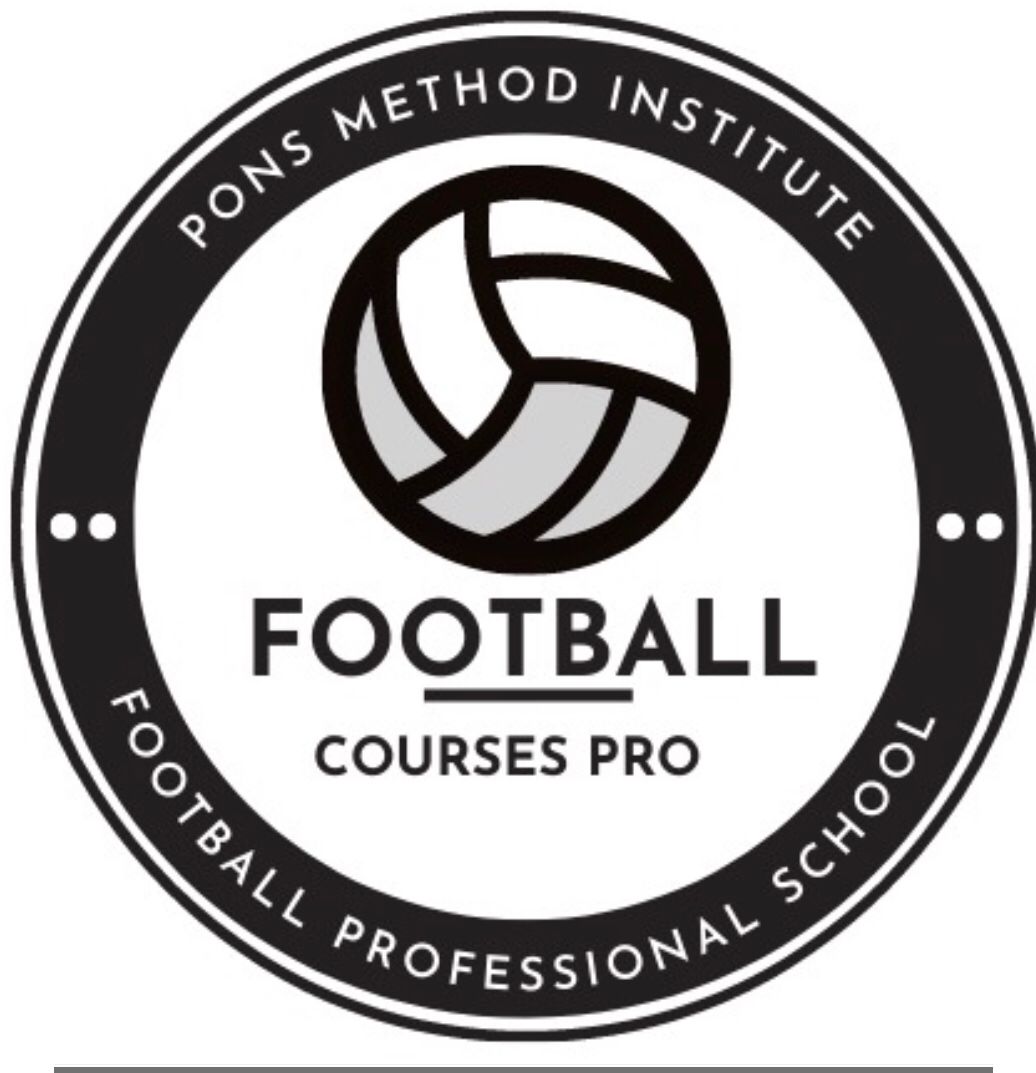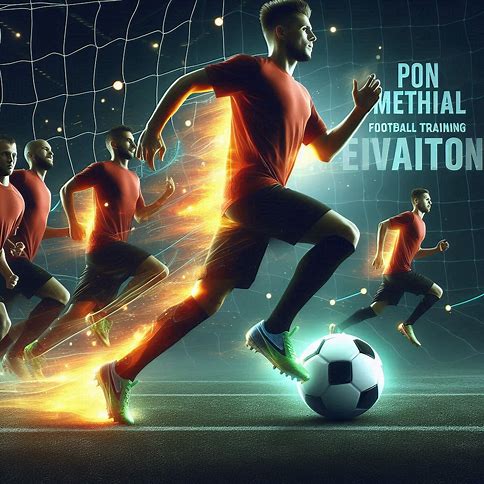Football training has evolved significantly in recent decades, integrating new methodologies and technologies to improve the performance of players and teams. Among these innovations, the Pons Method stands out as a revolutionary approach that transforms the way footballers are trained and prepared. This article examines how the Pons Method compares to other training methodologies, highlighting its ability to surpass traditional approaches and its impact on overall team performance.
Fundamental Principles of the Pons Method
The Pons Method is based on a series of innovative principles that distinguish it from other methodologies. Below are the key principles that underpin this modern training architecture:
• Specific Specialty Principle: Personalize training according to the position and role of each player, ensuring specific and directed development.
• Gamification Principle: Incorporates playful elements to increase motivation and commitment, making learning more attractive.
• Principle of Creation of Automated Processes (F.P.M): Develops behavioral patterns and automatic responses in players for fluid and efficient execution.
<span;>• Soccer Player-Specific Rehabilitation Principle<span;>: Personalizes the recovery of injured players considering their specific roles on the team.
<span;>• Empathic and Progressive Synchronicity Principle of the Game Model<span;>: Fosters connection between players for a cohesive and adaptable game that evolves over time.
<span;>• Principle of Specific Fragmentation of Training<span;>: Divide the game into smaller components to work intensively on specific aspects such as tactics, technique or decision making.
<span;>• Collective Individualization Principle<span;>: Personalizes training for individual needs within the context of the team, maintaining group cohesion.
<span;>• Principle of Specific and Individualized Inclusion of Modern Training<span;>: Adapts training to the needs and abilities of each player, with personalized plans and continuous monitoring.
<span;>• Principle of Comprehensive and Personalized Technological Update<span;>: Uses advanced and updated technology in training, adapting it to the needs of the team and each player.
<span;>• Dynamic-Complex Adaptability Principle<span;>: Promotes preparation that encompasses the adaptability and complexity of modern sport, preparing players and staff members to respond in a fluid and multifaceted manner to changing training situations and of the game.
<span;>• Principle of the Game Model as a Unified Center of Training<span;>: Develop a clear and consistent game model that aligns with the team’s philosophy and the players’ abilities.
<span;>• Principle of Positional Play<span;>: Emphasizes the importance of understanding and training specific positions on the field, improving players’ tactical acumen.
<span;>• Decision Making Principle<span;>: Prioritizes the development of players’ decision-making skills, ensuring they can make quick and effective decisions during games.
<span;>• Training Contextualization Principle<span;>: Adapts training sessions to match the context of upcoming matches, helping to prepare players for specific opponents and scenarios.
<span;>• Competitive Intelligence Principle<span;>: Uses competitive intelligence to obtain information about opponents’ strategies and adapt training and game plans accordingly.
<span;>• Data Analysis Integration Principle<span;>: Uses data analysis to further personalize training and game strategy based on real-time statistics and performance.
<span;>• Mental Health Focus Principle<span;>: Addresses the mental health and emotional well-being of players, as important as their physical condition.
<span;>• Environmental Sustainability Principle<span;>: Ensures that training practices and resources used are sustainable and respectful of the environment.
<span;>• Leadership Development Principle<span;>: Encourages the development of leadership skills within the team to create players who can assume leadership roles on the field.
<span;>• Principle of Communication and Continuous Feedback<span;>: Establishes an open and constant communication system between players and coaches for effective and real-time feedback.
• Principle of Cultural and Linguistic Flexibility: Adapt training to be inclusive with respect to the diverse cultures and languages of players, especially in international teams.
• Principle of Interdisciplinary Collaboration: Includes experts from different fields, such as nutrition, psychology and biomechanics, for a more holistic approach to training.
• Methodological Equipment Innovation Principle: Research and adopt the latest innovations in sports equipment and clothing to improve performance and safety.
• Principle in Continuing Education: Offers learning opportunities and continuous professional development for coaches and technical staff.
• Principle of Social Responsibility: Promotes social responsibility and community participation of players and the team.
• Specific Training Optimization Principle: Optimizes every aspect of training to maximize performance.
Development and Growth Levers of the Pons Method
The Pons Method also stands out for its development and growth levers, which connect clubs, federations, associations and academies around the world through performance programs. These levers include:
• Connecting TKT (Talent, Knowledge, Tools):
• Talent: Identification and development of individual skills.
• Knowledge: Share and apply best practices and game models.
• Tools: Provide advanced resources and technology to facilitate learning and execution of strategies.
• FPM Processes (Protocols, High Performance Modeled Processes):
• Standardization of Excellence: Ensure that protocols reflect best practices and lead to high-level results.
• Flexibility and Adaptability: Allow processes to adjust to individual and collective needs.
• Dynamic Feedback: Establish a feedback system for quick and effective adjustments.
• Sustainable Quality: Ensure that the modeled processes are sustainable and promote high performance in the long term.
• Staff Empowerment:
• Continuous Training: Regular training to keep staff updated with the latest trends and methodologies.
• Distributed Leadership: Promote an environment where multiple staff members can make key decisions.
• Professional Development: Investment in the professional development of staff.
• Data-Based Decisions: Train staff to make decisions based on data analysis and scientific evidence.
• Cultivation of the Players:
• Team Identity: Build a strong team culture that celebrates individual and collective achievements.
• Winning Mentality: Instill a mentality of high performance and success in each player.
• Holistic Development: Consider all aspects of player development, including mental, physical, technical and tactical.
• Cohesion and Unity: Strengthen team cohesion and unity in the pursuit of common objectives.
• Constant Knowledge Community:
• Collaborative Learning: Foster an environment where knowledge is shared openly.
• Open Innovation: Creating a space for new ideas and strategies to be welcomed and explored.
• Global Exchange: Establish connections with global sports organizations to exchange knowledge and best practices.
• Continuous Update: Stay up to date with the latest research and trends in sports for continuous improvement.
Comparison with other Training Methodologies
Unlike other methodologies such as tactical periodization, the Pons Method is not limited to a specific approach but rather integrates a wide range of principles and levers to maximize performance. While tactical periodization focuses on the integration of tactics into physical and technical training, the Pons Method goes further by including aspects such as gamification, specific rehabilitation, technological updating, and environmental sustainability. Additionally, tactical periodization often focuses on the structure of training over time, while the Pons Method continually adapts training to the individual and collective needs of the team.
Conclusion
The Pons Method represents a significant evolution in modern football training. Its holistic approach, based on innovative principles and levers, offers a structure that not only optimizes the physical and tactical performance of players, but also promotes their mental and emotional well-being. By integrating the latest technology and fostering a culture of continuous learning and collaboration, the Pons Method sets a new standard of excellence in the field of football.
Holistic Integration of the Pons Method
The key to the success of the Pons Method lies in its holistic approach, which encompasses all aspects of player and team development. This method not only focuses on physical and technical improvement, but also on the integration of psychological, emotional and social factors, creating a complete and balanced training environment.
• Technology Integration and Data Analysis:
• The Pons Method incorporates the use of advanced technology and data analysis to personalize training and game strategy. By continuously monitoring player performance, coaches can tailor training programs to individual needs, thus optimizing each player’s development.
• Adaptability and Flexibility:
• The ability to adapt to the changing needs of the team and the players is a pillar of the Pons Method. This includes customizing training to specific match contexts and constantly evolving tactics and strategies.
• Promotion of Leadership and Personal Development:
• The method promotes the development of leadership skills within the team, ensuring that players not only improve their performance on the field, but also become leaders capable of guiding and motivating their teammates.
• Focus on Mental Health and Wellbeing:
• Recognizing the importance of mental well-being, the Pons Method includes specific programs to address the emotional health of players. This ensures that players are mentally prepared and motivated, which contributes to better overall performance.
• Sustainability and Social Responsibility:
• In an effort to promote sustainable practices, the Pons Method ensures that training practices and resources used are environmentally friendly. In addition, social responsibility and community participation of the players and the team are encouraged, creating a positive impact beyond the field of play.
Practical Implementation of the Pons Method
Implementing the Pons Method requires a structured and systematic approach that includes:
• Initial Evaluation and Planning:
• A thorough analysis of the capabilities and needs of each player and the team as a whole.
• Establishment of clear and specific objectives based on this initial evaluation.
• Development of Customized Programs:
• Creation of individualized training programs that align with the principles of the Pons Method.
• Use of technology and data analysis to adjust and optimize these programs in real time.
• Training and Execution:
• Implementation of training sessions that integrate gamification, specific fragmentation and other Pons Method strategies.
• Encouraging continuous communication and feedback between players and coaches to ensure constant improvement.
• Continuous Monitoring and Evaluation:
• Use of technological tools to monitor player performance and progress.
• Regular evaluation of training programs and adjustment as necessary.
• Fostering a Culture of Learning and Collaboration:
• Establishment of a knowledge community where coaches, players and other staff members can share and learn from best practices and experiences.
Success Stories and Benefits of the Pons Method
Teams that have adopted the Pons Method have seen significant improvements in several aspects:
• Improvement in Sports Performance:
• Teams that implement this method have shown greater cohesion in the game, faster and more effective decision making, and better physical and tactical performance.
• Personal Development of Players:
• Players not only improve their soccer skills, but also develop leadership skills, winning mentality and emotional well-being.
• Positive Impact on the Community and Sustainability:
• Teams committed to social responsibility and sustainability have created a positive impact in their communities, promoting values beyond sports.
Conclusion
The Pons Method is not just a training methodology, but a comprehensive philosophy that transforms the way teams and players prepare for success. By integrating principles of specialization, gamification, advanced technology and a holistic approach to player well-being, the Pons Method sets a new standard of excellence in modern football. Teams and players that adopt this method will be better prepared to face the challenges of the sport, ensuring optimal and sustained performance both on and off the field.

